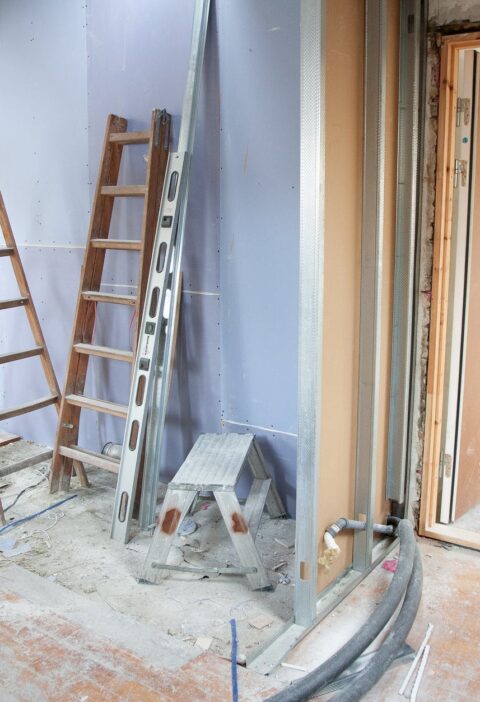When you’re trying to buy a residence, there are a lot of contingencies that are negotiated. Most of the time contingencies are negotiation points for the seller. This is a chance for them to cover themselves in the case that issues arise during the closing process.
One of the more common contingencies is a mortgage contingency. This lets the seller know that the buyer will only buy the property if he or she can secure mortgage financing.
But do you plan to waive mortgage contingency? This is one question you need the answer to before settling on a property. Read on to learn more about mortgage contingencies and when waiving one is appropriate.
What is Mortgage Contingency
Mortgage contingency is an agreement made between a buyer and a seller in a home purchase transaction. A mortgage contingency is the buyer’s assurance that they will be able to obtain a loan of the designated type, at the designated terms. This is within a certain period.
Waiving a mortgage contingency means that the buyer does not have to wait to obtain financing before proceeding with the purchase. This means the buyer is at risk of not qualifying for the loan but willing to take the chance of losing the earnest money.
A buyer may waive mortgage contingency if they have a previous relationship with a lender or if they are willing to offer a higher purchase price. When mortgage contingency is waived, the purchase of the home continues regardless of whether or not the buyer receives the loan.
What Are Its Advantages
Waiving a mortgage contingency is an option for buyers when purchasing a home in a competitive market. It essentially eliminates part of the contingency process.
For a buyer, this means they are agreeing to purchase a property without a previously agreed-upon mortgage contingency. This waiver of the contingency may help them move forward with their offer on the home.
Waiving a mortgage contingency is a great way for a buyer to give their offer a better competitive standing, but it comes with a few risks. Waiving financing contingency can greatly help in case of financial issues. It’s also important for buyers to make sure they have their finances in order before going this route.
Nonetheless, there are some major advantages to waiving a mortgage contingency. If accepted, this gives the buyer a better chance of their offer being accepted in a competitive market. Knowing the benefits of financial contingency can help you in any property purchase.
It opens the door to some beneficial negotiation options. In short, it’s a high-risk move for any buyer, but there are certainly distinct advantages.
What Are Its Disadvantages
Waiving a mortgage contingency during the home-buying process is risky for the buyer because they have not been approved for a loan yet and could be left without a home if they are unable to secure financing.
The seller also risks losing a potential buyer if the buyer is not approved for a loan. Another downside is that if issues arise when applying for a mortgage, such as an appraisal not passing, then the buyer must find a way to pay the difference or resell the home.
This could leave the buyer with a financial loss if they are unable to recoup their money. Lastly, buyers should be cautious when waiving a mortgage contingency because they cannot cancel the mortgage agreement if it is not approved.
However, before anything else make sure to read the contingency clause to avoid any issues. This method may offer a great benefit to home buying, but it also carries great risk. Which is why you need to do a lot of research.
How to Minimize Risk in Waiving Mortgage Contingency
When waiving your mortgage contingency, it is important to understand what it means and how to minimize risk. To minimize risk when waiving the mortgage contingency, buyers can be proactive and speak with their lending institution. It should be before making an offer to ensure they are pre-qualified for a loan and comfortable with the stated terms.
Buyers can obtain a thorough inspection of the home before the close of escrow. This is to ensure they are making a clear-eyed decision. Before making a decision, consult a realtor or consult with First Call Home Buyer to learn more about waived contingencies.
Consulting an expert can help you understand how the loan contingency process works and what to expect. It is also important to ensure that the likelihood of loan approval is secure before waiving the contingency. In the end, waiving the mortgage contingency can be beneficial to buyers if they are well-informed, prepared, and confident in their decision.
What Factors Affect a Mortgage Contingency
Waiving a mortgage contingency is a major decision and understanding all of the factors involved is important. Mortgage contingencies protect homebuyers if the loan does not close on time. The main factors involved with a mortgage contingency include the loan timeline, loan fees, down payment, and other terms of the loan.
The amount of time it will take for the loan to be secured must be considered. Additionally, loan fees can be costly, especially if they are paid upfront. The size of the down payment will also determine if the loan can be approved.
Finally, other loan terms, such as loan type, interest rate, and borrower credit score, may affect the mortgage contingency. Taking all of these factors into account will help a homebuyer decide if waiving the contingency is the right choice.
Be Wise When You Waive Mortgage Contingency
Waiving a mortgage contingency allows buyers to be more competitive in the home-buying process. Ultimately, it gives them an edge over other buyers and can win them the home of their dreams. If you waive mortgage contingency make sure to do a lot of research.
To get the best possible outcome, it is important to understand your rights and benefits when it comes to waiving a mortgage contingency. Contact a lawyer or real estate agent for assistance.
If you want to read more articles, visit our blog.







